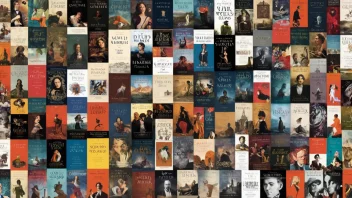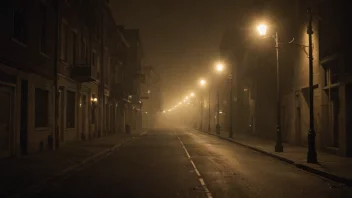Writing a compelling crime novel requires more than just a captivating plot and intriguing characters. It demands thorough research to create a believable world that resonates with readers. Whether you’re penning a gritty detective story or a psychological thriller, understanding the intricacies of crime, law enforcement, and criminal psychology is crucial. Here are some effective strategies to enhance your research process and ensure your crime novel stands out in the crowded genre.
1. Immerse Yourself in True Crime Literature
Before diving into your own writing, familiarize yourself with the true crime genre. Reading true crime books can provide a wealth of information about real criminal cases, investigative techniques, and the psychological profiles of criminals. Here are a few notable titles to consider:
- In Cold Blood by Truman Capote
- The Devil in the White City by Erik Larson
- I'll Be Gone in the Dark by Michelle McNamara
These works not only detail real-life crimes but also explore the minds of the criminals involved, giving you insights that can enhance your fictional narrative.
2. Conduct Interviews with Experts
Nothing beats firsthand knowledge when it comes to writing about crime. Reach out to professionals in law enforcement, forensic science, or criminal psychology. You can conduct interviews or attend lectures and workshops. Consider these approaches:
- Contact local police departments and inquire about ride-alongs or informational sessions.
- Attend criminal justice conferences or workshops to network with experts.
- Join online forums or groups dedicated to crime writing, where you can ask questions and seek advice.
These interactions not only provide factual information but also allow you to gather anecdotes that can enrich your storytelling.
3. Explore Online Resources and Databases
The internet is a treasure trove of information for aspiring crime writers. Utilize reputable online resources and databases to gather facts and statistics related to crime trends, legal procedures, and forensic science. Some valuable websites include:
- The FBI's Uniform Crime Reporting (UCR) - Offers insights into crime statistics across the United States.
- The National Institute of Justice - Provides information on research and development in criminal justice.
- Online archives of court cases - Useful for understanding legal proceedings and outcomes.
These resources can help you create a more authentic and fact-based narrative.
4. Study the Crime Genre’s Structure
Understanding the typical structures and tropes of crime novels can help you craft a more engaging story. Analyze the works of established authors in the genre to identify common themes and narrative techniques. Here are some elements to consider:
- Character archetypes: The detective, the criminal, and the victim.
- Plot twists and red herrings that keep readers guessing.
- The pacing of revelations—how and when information is disclosed to the reader.
By studying these aspects, you can learn how to structure your own story for maximum impact.
5. Visit Crime Scenes and Related Locations
If possible, visit locations relevant to your story, such as crime scenes, police stations, or forensic labs. Observing these places firsthand can spark inspiration and provide context that enhances your writing. Consider these tips:
- Take detailed notes or photographs to reference later.
- Pay attention to the atmosphere and how it might influence the mood of your narrative.
- Engage with locals or professionals who may share stories or insights about the area.
This immersive experience can help you create a vivid and realistic setting for your crime novel.
In conclusion, researching for a crime novel is a multifaceted process that involves immersing yourself in true crime literature, conducting expert interviews, utilizing online resources, studying genre structures, and visiting relevant locations. By employing these strategies, you can enhance the authenticity of your narrative and engage readers with a compelling and believable crime story that resonates long after the last page is turned.






